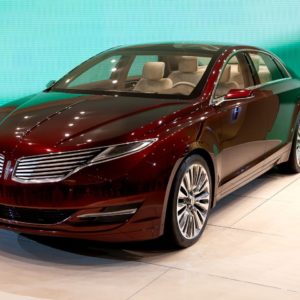The Lincoln Navigator is a full-size luxury SUV that’s built to last. Aside from its posh cabin, its superb handling and excellent fuel economy make it stand out from other vehicles in its segment. Whether you’re thinking of buying a Lincoln Navigator or already drive one, it’s helpful to know its reliability ratings and the common issues you may encounter as your SUV racks up mileage.
RepairPal gave the Lincoln Navigator an average reliability score of 2.5 out of 5, ranking it 5th out of 19 vehicles in the luxury vehicle category. This rating is based on the site’s data on the cost, severity, and frequency of reported repairs.
J.D. Power, on the other hand, gave the 2021 Lincoln Navigator a predicted reliability score of 84 out of 100. Older models also don’t fall to far behind—the 2007 Lincoln Navigator received a score of 4.7 out of 5 from Kelley Blue Book.
As reliable as it is, the Lincoln Navigator isn’t perfect. Just like other vehicles on the market, performance and drivability issues may arise as this model gets older. Here are some of the top issues per model year of the Lincoln Navigator:
Rust Damage on Running Boards
One of the most common issues involving some 2006 Lincoln Navigator units affects their running boards. Owners report discovering rust damage on the panels, which in some cases, caused the support structure to become unstable.
Depending on the extent of the damage, owners have had to replace the brackets or the entire running board to solve the issue. Repairs for this type of problem can cost you up to $1,500 on parts and labor.

Air Suspension Problems
Another common problem you may encounter in some Lincoln Navigator models manufactured from 1998 to 2010 involves the vehicle’s air suspension. According to reports, issues may arise when drivers forget to switch off the air suspension when using a jack to lift the vehicle.
As their vehicles were lowered, owners noticed that their air bags failed to self-adjust, which caused the back or sides of their SUVs to droop and shake. These symptoms may also happen later, after their vehicles have been parked for a while.
Although this issue may arise across different model years of the Lincoln Navigator, it is most prevalent in units belonging to the 2004 model year. Air suspension repair costs may set you back by around $2,350 for parts and service.
Corroded Battery Cable Ends
The battery cable ends on some 1998-2010 and 2015 Lincoln Navigators have been reported as prone to corrosion. Although corroded battery cable ends are easy to fix, they may contaminate the cable insulation and cause serious damage to your vehicle’s electrical system.
One owner had to replace his 2007 Lincoln Navigator’s alternator to resolve electrical problems caused by corroded battery cable ends. To avoid repairs like this, be sure to check your battery cable once in a while for signs of corrosion.
EGR System Issues
Some units of the 1998-2010 Lincoln Navigator may develop issues with their EGR system, especially when driven in dusty areas. The filter on the EGR solenoid may get clogged, causing the system to activate when it’s not supposed to. The engine of these SUVs may stutter, rough idle, or stall. Replacing the dirty EGR solenoid filter appeared to solve the issue on most affected vehicles.
Coolant Leaks and Overheating
Coolant leaks are also fairly common in some 1999-2014 Lincoln Navigators. Owners of affected vehicles report smelling a strong coolant odor from their SUV, frequent engine overheating, as well as an activated low engine coolant warning light.

Determining the source of the leak may be difficult if you’re not a mechanic, especially if it is deep within the intake manifold. Coolant leak repair requires advanced technical knowledge and skills because parts like the intake manifold, heater tube, and water pump may need to be removed to replace the intake hose connector or o-rings.
PCV Grommet Vacuum Leaks
PCV vacuum leaks are another thing to watch out for in some 1998-2003 and 2005 Lincoln Navigators. According to reports, the molded rubber hose connections on the affected units may crack or collapse, causing the engine to run rough. Owners recommend replacing the damaged PCV hose to solve the issue.
Keep in mind that these are only some of the issues you may encounter with your Lincoln Navigator over time. By knowing its most common issues and sticking to your vehicle’s maintenance schedule, you can keep your ride in top condition for a long time and get the most mileage out of your SUV.
If you notice an issue with your Lincoln Navigator’s alternator, replace it immediately. Your car’s battery relies on the alternator for charging, so it’s vital to get a new part you can depend on. Luckily, you can get a reliable replacement Lincoln Navigator alternator here at CarParts.com.
CarParts.com is your one-stop shop for Lincoln Navigator alternators and other replacement parts. We believe that you deserve to get long-lasting parts that deliver world-class performance, so we exclusively source our products from companies trusted by drivers across the US. Finding a compatible Lincoln Navigator alternator in our extensive catalog of parts and accessories is easy. Just plug your vehicle’s details (year, make, model, and engine) into our website’s built-in vehicle selector. Ordering your new part takes only a few taps on your phone. We can deliver to your doorstep in just a few days if you live in the continental US and place your order before 12 p.m.
So, what are you waiting for? Visit CarParts.com and browse our selection of Lincoln Navigator alternators to find the right alternator today!
Any information provided on this Website is for informational purposes only and is not intended to replace consultation with a professional mechanic. The accuracy and timeliness of the information may change from the time of publication.


















